Ramadan is the holiest month of the Islamic calendar. The dates of Ramadan change yearly depending on the lunar cycle and often the exact dates of Ramadan are not known until weeks before the commencement date. Ramadan is an extremely holy and special month in Islam and there are many changes to society during this month. Traveling during Ramadan can pose some challengers for foreign travellers and the rules change country-to-country. This guide will assist you with navigating traveling during Ramadan by explaining the social rules, what is expected of you as a foreigner and tips to enjoy traveling during this extremely interesting month!
Table of Contents
Ramadan (Briefly) Explained
Ramadan is the holiest month in the islamic calendar and is the celebration of the month in which the Quran was first revealed/ sent to earth.
Ramadan consists of fasting from sunrise to sunset daily for the month of Ramadan. The process of this intermediate fasting not only has proven positive health benefits, but is also about worship and an attempt to be closer to God. While no food or liquids are consumed during daylight hours, when the sunsets it’s customary to visit family and friends and break fast together in a meal called iftar.
The day after Ramadan ends, there is a very important celebration called Eid-al-Fitr, or commonly called Eid. Eid is the biggest celebration of the Islamic calendar and marks the end of Ramadan with celebrations with family, friends, lots of food and exchanging of gifts.
While there are of course exemptions for those who travel, are sick, elderly, pregnant and menstruating, most other people are expected to partake in the fasting.
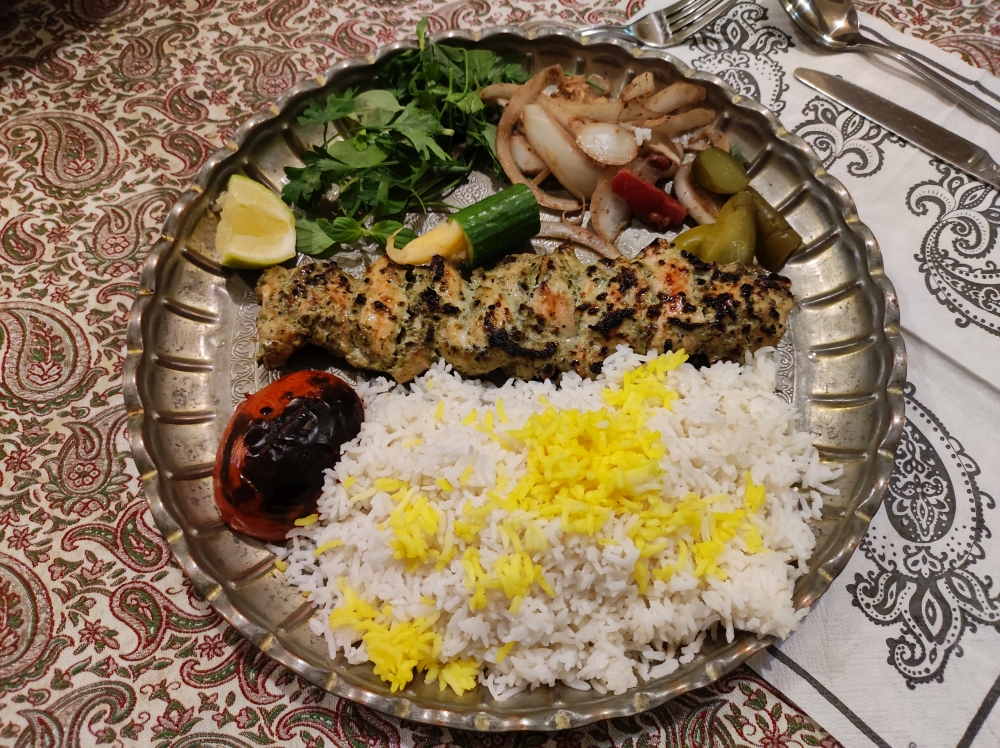
Ramadan In The Gulf Countries
Ramadan is a particularly important month for the Gulf countries. Islam was first revealed in the land of modern day Saudi Arabia. While not everyone in these countries is Muslim, particularly with the immigration of migrant workers, the traditions of Ramadan are held tightly in most gulf states.
If you are traveling during Ramadan, you may find it very difficult to find a place to eat during fasting hours and it is best to bring a packed lunch and snacks with you. At the same time, it is courteous to not eat in public, to respect the people who are fasting.
The UAE and some other Gulf States observe, there is a specific tradition of Haq al Laila which is almost like trick-or-treating where children yell out “Atoona Hag Al Laila” or “give us sweets”. This event is held in the 8th month of the Islamic calendar (middle of the month prior to Ramadan). In Kuwait, the day prior to Ramadan is a tradition of Al-Kareesh which is a family lunch the day before Ramadan commences.
You also may find a lot of public places such as museums and attractions are closed – sometimes mosques to non-muslims. While it is best to travel outside of Ramadan time to ensure you get to visit all the must-see attractions, if you do decide to travel in Ramadan it is best to go with a guide who can navigate the different social situations better.
It is a great time to be awake at night and walk the streets where you will see many locals in great spirits on the streets and filling cafes and restaurants.
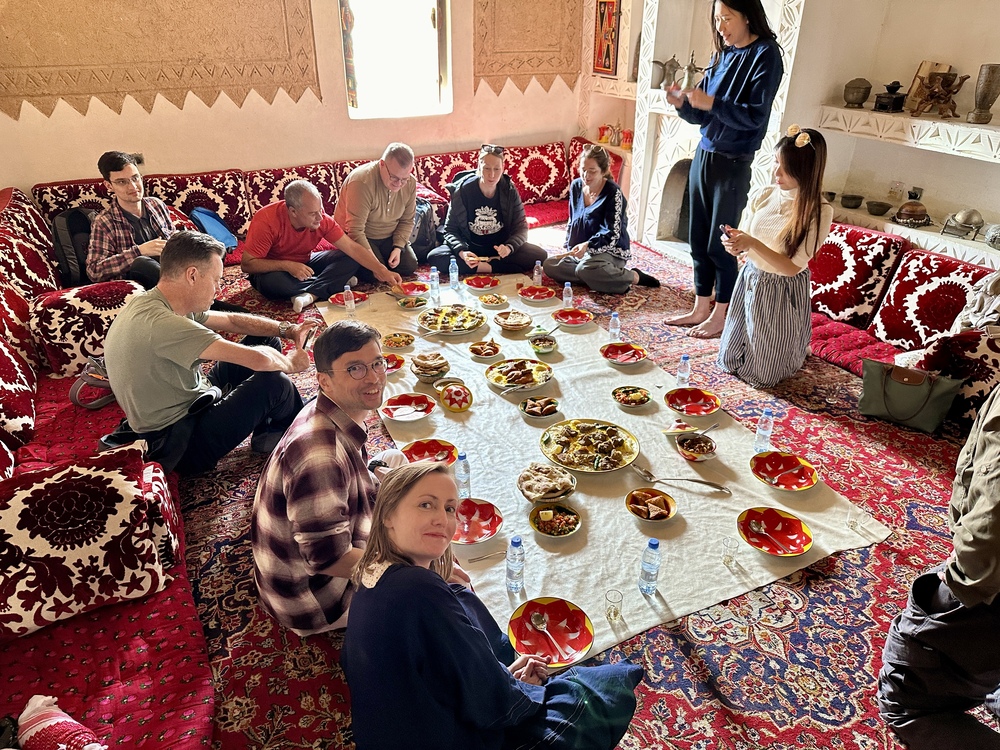
Ramadan in the Levant Region (Palestine, Syria, Jordan, Lebanon), Iraq and Iran
The Levant and Iraq are very religiously diverse – these countries have Christians, Jews, Druze Yazidis and many more sects and subgroups of the aforementioned religions. That being said, muslims are the predominant group in the region.
Ramadan in the region is less strict in most cities than in the Gulf, however it depends city to city. As always it is best to not eat or drink in front of fasting people out of respect, however you should be able to find food outlets during the day. Just consider that menu options may be limited.
People from the Levant love to celebrate and cities are lit up, busy and energetic after the fasts break! It is a great time to be in the streets and celebrate with locals!
In Iraq, after the fast is broken many people enjoy playing games including mheibes in which one team hides the ring among its players, while the other team has to guess who is hiding it based on body language. The losing team then treats everyone to baklava and other sweets.
As Ramadan in Iran collides with Persian New Year Traditions (such as Newroz), Iran has recently eased their Ramadan restrictions. Restaurants and cafes are able to stay open for their normal opening hours. However, the windows must be covered to avoid attention from passers by. If you are traveling to Iran during Ramadan and you think a restaurant or cafe might be closed, take a closer look!
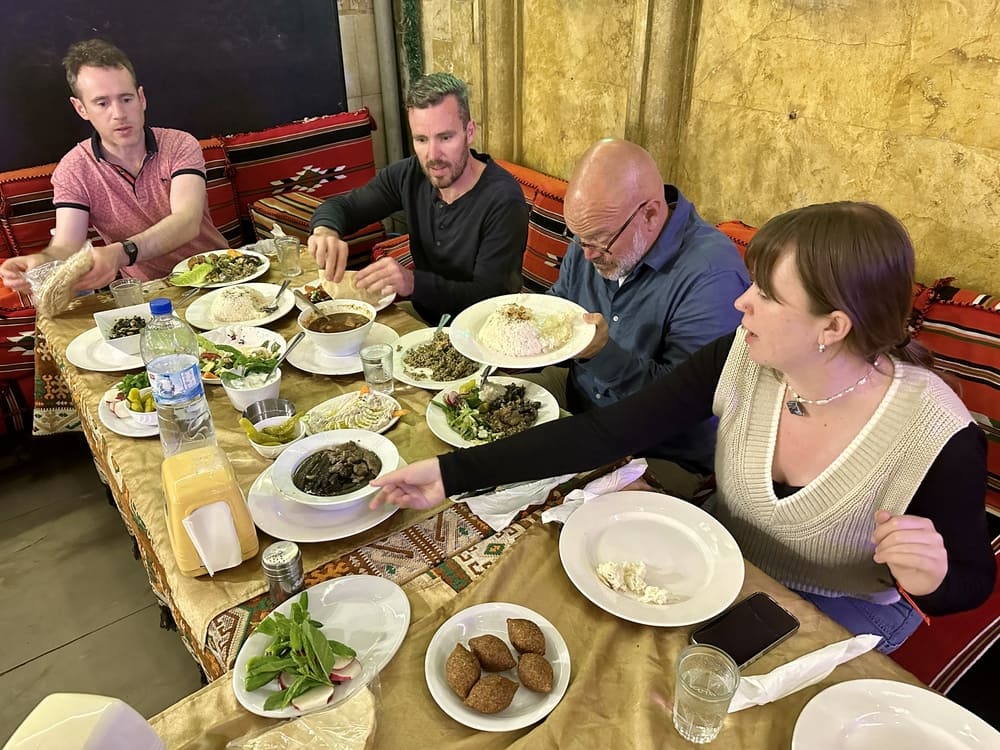
Ramadan in Central Asia – The ‘5 Stans’
Ramadan in Central Asia is observed in most countries, however it is less strict than in other muslim majority countries. It is rare to find businesses in most of the Stans that will not serve food during daylight hours. You may hear something along the lines of ‘it is Ramadan, so we only drink (alcohol) at night” – which is very different to many of their neighbours to the West and South.
However, this depends from country to country, and internal region to region. Uzbekistan is perhaps the most religiously conserved meaning that you may find more people fasting, the streets may be quieter during the day and alive more at night. However, this depends where you are in Uzbekistan. Even in pretty religious cities such as Bukhara, you can still east during the day, however you may find it difficult to find a restaurant serving alcohol at night.
The Stans have somewhat of a complicated relationship with their most followed faith. Some countries such as Turkmenistan, Tajikistan and Kazakhstan are very concerned about Islamic extremism spreading and therefore in some areas, going to the mosque, praying 5 times a day and even growing beards can be slightly unnerving for the government.
Thus, while Ramadan still remains to be a celebrated month, especially as a tourist traveling during Ramadan, you should have no real issue in accessing food and even alcohol. As always it is important to be discreet, especially if you notice locals observing Ramadan out of respect.
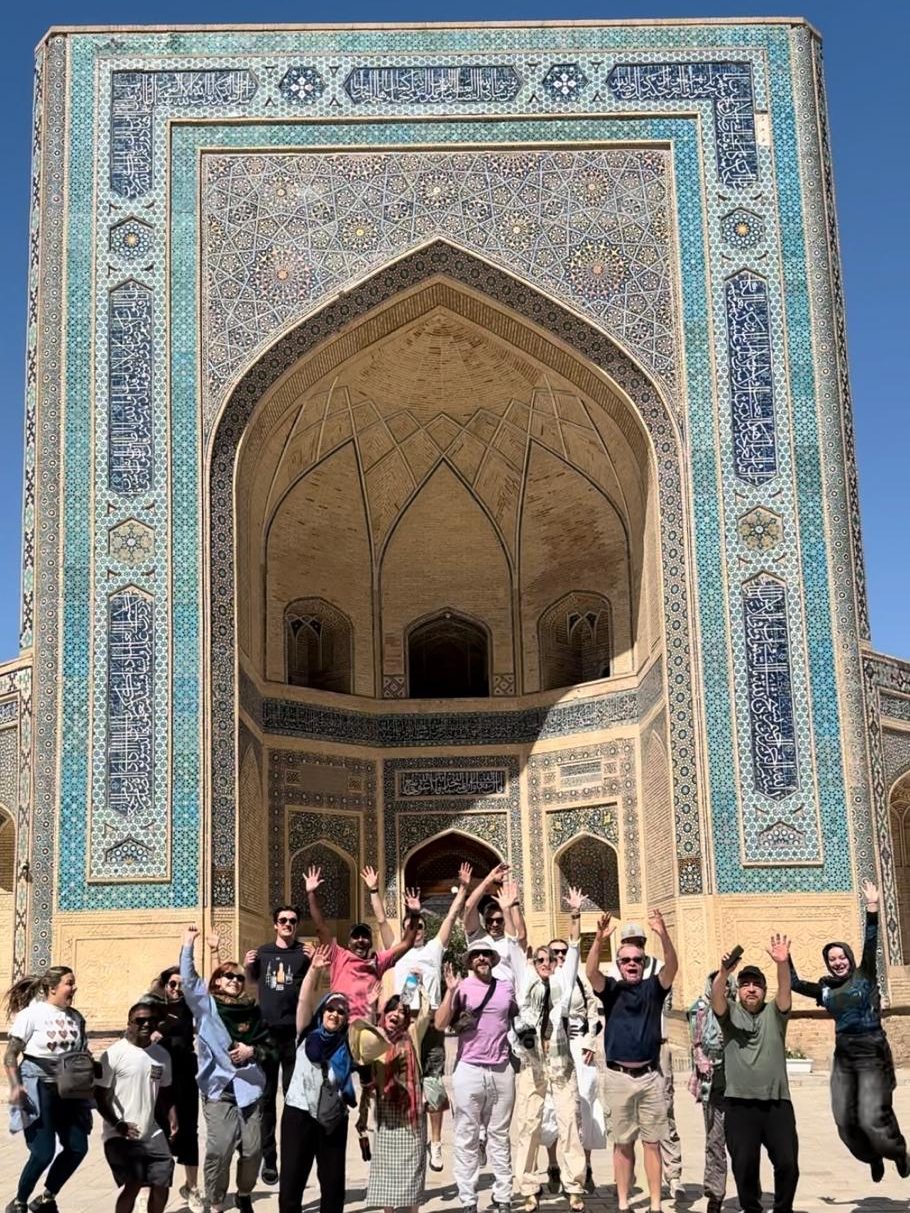
Ramadan in Pakistan and Afghanistan
In Pakistan, there is a 34-year-old law requiring Muslims to abstain from eating and drinking in public during the holy month of Ramadan. Ehtiram-e-Ramadan (Respect for Ramadan), an Islamic law that prescribes punishments of up to three months in jail and a fine for people who drink or eat publicly. If you are traveling during Ramadan it is best not to eat in the public view at all as it may cause public offense. It may be less likely that people in public will be forgiving for faux pas.
In Afghanistan, Sharia Law is in place and thus everyone must abide by the rules of Ramadan.
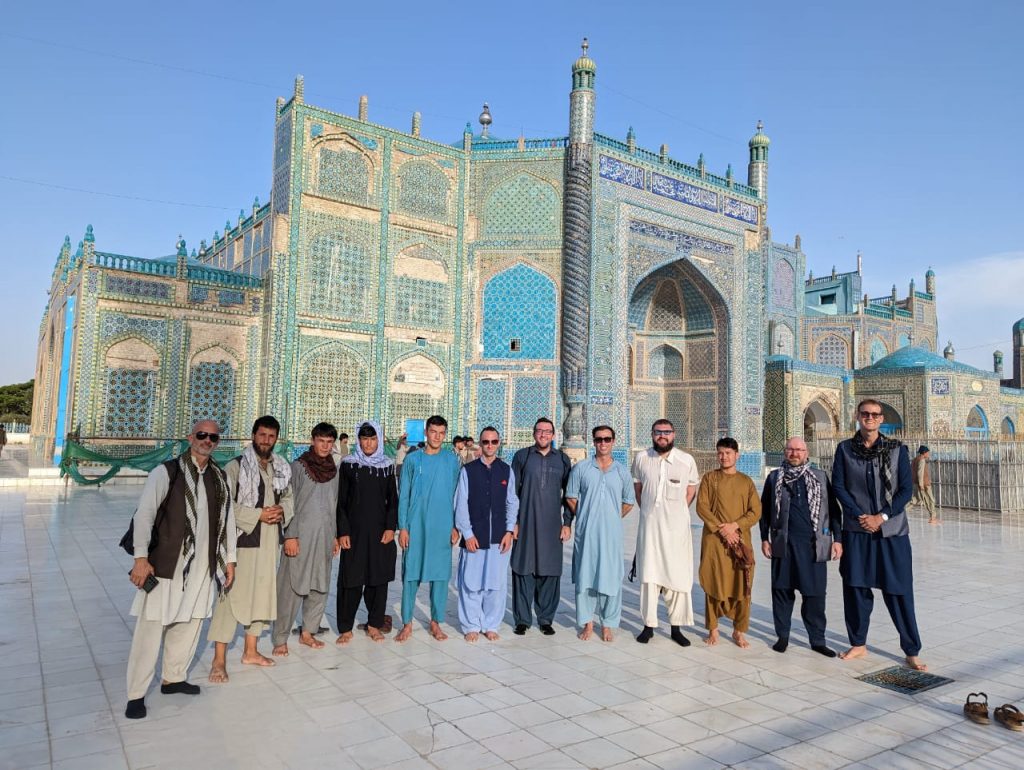
Traveling During Ramadan
Traveling during Ramadan can be a fantastic time to travel for incredible, extra-mile hospitality, positive atmospheres and lively cities at night. It is important to keep in mind that food may not be as commonly available and to be aware of the people around you to be as respectful of the locals as you can. While maybe not everyone celebrates Ramadan, places may be closed, attractions may be shut and it may not be appropriate for non-muslims to enter mosques during this time.
Do you want to travel to the Middle East during Ramadan? We have the following tours available for an incredible, in-depth cultural trip!
Celebrate Ramadan AND Newroz together on our Whole Iraq Ultimate Tour!





